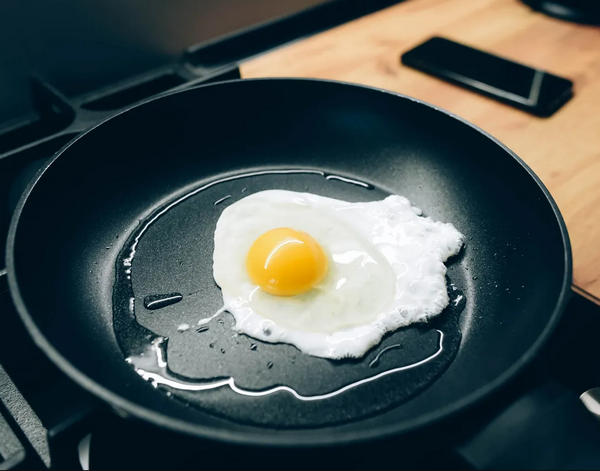Ways to maintain and care for Teflon cookware + video
Teflon cookware has become a popular choice for many households due to its non-stick properties and ease of use. However, in order to prolong the life of your Teflon cookware, it is important to properly care for and maintain it. Here are some methods for maintaining and caring for Teflon cookware in your home:
How to Properly Maintain Your Non Stick Pans :
Handwashing: The best way to care for Teflon cookware is to handwash it with a mild dishwashing detergent and a soft sponge or cloth. Avoid using abrasive cleaning tools, such as steel wool or scouring pads, as they can scratch the surface of the Teflon coating.
Avoid high heat: While Teflon cookware is designed to withstand high temperatures, it is best to avoid using it on high heat settings for extended periods of time. This can cause the Teflon coating to break down and potentially release harmful chemicals.
Use wooden or silicone utensils: Metal utensils can scratch and damage the Teflon coating, so it is best to use wooden or silicone utensils when cooking with Teflon cookware.

Store carefully: To avoid scratching or damaging the Teflon coating, store your Teflon cookware in a way that prevents it from rubbing against other items. You can also use felt or cloth separators between your Teflon cookware to protect the coating.
Avoid stacking: Do not stack your Teflon cookware on top of each other, as this can cause scratches and damage to the coating. Instead, store them separately in a cabinet or on a shelf.
Check for damage: Inspect your Teflon cookware regularly for any signs of damage, such as scratches or chips in the coating. If you notice any damage, it is best to stop using the cookware and replace it.
Avoid cooking acidic foods: Teflon coatings are sensitive to acidic foods such as tomatoes, citrus fruits, vinegar, and wine. Therefore, it is best to avoid cooking such foods in Teflon cookware as it can cause the coating to deteriorate and leach harmful chemicals.
Do not use metal scouring pads: Avoid using metal scouring pads, harsh abrasives, or sharp objects on Teflon cookware as they can scratch and damage the coating. Instead, use a soft sponge or cloth to clean the cookware.
Dry thoroughly: After washing your Teflon cookware, it is important to dry it thoroughly to prevent any moisture from getting trapped and causing rust or other damage. Use a soft towel or cloth to dry the cookware completely.
Avoid overheating: Overheating Teflon cookware can cause the coating to break down and release harmful fumes. To prevent this, do not preheat the cookware on high heat or leave it on the stove unattended.
Consider replacing old Teflon cookware: Over time, Teflon coatings can wear down, scratch, or chip. When this happens, it is important to consider replacing the cookware to avoid potential health risks associated with using damaged Teflon cookware.
Use the right burner size: When using Teflon cookware, it is important to use a burner size that matches the size of the cookware. Using a burner that is too small can cause the cookware to overheat, while using a burner that is too large can cause the coating to break down and release harmful chemicals.
Avoid using cooking sprays: Cooking sprays can build up on Teflon coatings and create a sticky residue that is difficult to remove. Instead, use a small amount of oil or butter to coat the surface of the cookware before cooking.
Store with care: When storing Teflon cookware, avoid stacking heavy items on top of it or placing it in a location where it can be easily bumped or knocked over. This can cause scratches or damage to the coating.
Follow manufacturer’s instructions: Always follow the manufacturer’s instructions for caring and maintaining your Teflon cookware. This can include specific cleaning instructions, temperature recommendations, and other care instructions that are specific to your cookware.
In conclusion, Teflon cookware can provide convenient and non-stick cooking, but it requires proper care and maintenance to ensure its longevity. By following these methods, you can protect the Teflon coating and maintain the performance of your cookware for years to come.


